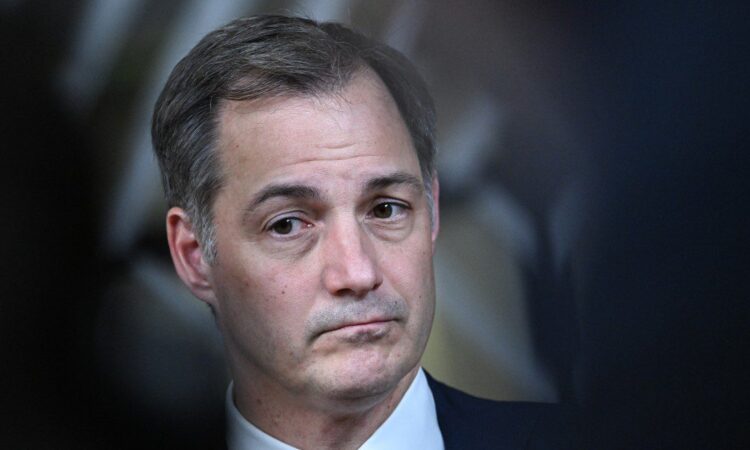
Belgium will commence its six-month control of the influential Presidency of the EU Council this week, looking set to promote a strident federalist agenda while continuing the bloc’s rule-of-law campaign against Hungary.
The Belgian presidency is seen by Eurocrats as an opportunity to shore up their progressive policy platform ahead of tumultuous European elections next year. Polls suggest the election results are likely to benefit right-wing populists, which, along with Hungary’s assumption of the presidency in June could unsettle the centralisation project of an “ever closer union”.
The presidency gives nation states the power to set the agenda at the European Council—the body designed to represent the interests of member states—at a time when the EU ponders eastward expansion and further centralisation of powers through treaty changes.
In an interview with Politico, Belgian’s centrist Prime Minister Alexander De Croo outlined his wish to rapidly fill the EU’s coffers at the expense of member states, enabling the bloc to exert itself on the world stage in the face of growing international turmoil.
De Croo was careful not to mention the specifics of the EU’s potential new revenue streams, amid ongoing attacks on the tax-raising abilities of the more pro-market member states already causing some diplomatic strain.
The EU currently raises funds primarily through a mixture of member contributions based on GDP figures and import duties. The bloc’s finances were thrown into disarray by the impact of COVID and the Russian invasion of Ukraine. The Belgian plans are also likely to kick the hornet’s nest on longstanding North-South on fiscal tensions within the EU at a time when concerns over the integration of new members, the green transition, post-lockdown recovery funding, as well as Ukraine weigh heavily on budgetary matters. According to Politico, De Croo claimed “European citizens” are looking more to the EU for solutions to global issues:
With every major challenge we face, the European population, even the more Euroskeptic ones, look to Europe to solve those challenges because countries alone cannot do it … If you want to answer those calls, you’re going to have to rearrange your priorities, which for us inevitably leads to a discussion: Where does the money come from?”
Despite a populist surge, the Eurocrat solution is always more Europe. And of course, a secure and stable source of financing is a necessity for federalist ambitions as EU elites look to increase their power over member states and keep dissenting national voices under wraps. As we have pointed out before, the previously floated EU corporate income tax could easily become a way for Eurocrats to bully member states at the same time as they would create massive uncertainty for corporations. The European Council is an important platform for federalists to exert control and only last month, it was the site of a showdown between Hungary’s Fidesz government and other member states over Ukraine’s membership application.
Previewing the foreign policy concerns of the Belgian presidency, Belgium’s PM was also keen to promote the concept of “European strategic autonomy” in response to the risk of an isolationist U.S., warning that the EU needed an industrial policy that did not favour just France and Germany.
The official website of the Belgian presidency lists six key policy points (rule of law, competitiveness, green transition, health, and migration) with the country’s Algerian-heritage foreign minister Hadja Lahbib trumpeting her government’s ability to solve multi-lingual division as a major selling point.
De Croo and his government are also seen as a steadying influence on Ukraine policy as well as continuing the accession process of the Western Balkans. This coincides with both weakening European unity and with Eurocrats and NATO battling to maintain international support for Ukraine’s underperforming military.
The Belgian presidency will likely seek to finalise approval for the EU’s hotly debated Asylum and Migration Pact, which many governments have slammed as an affront to their national sovereignty, due to the threat of EU-administered fines for member states that refuse assigned quotas of refugees.
Despite being torn between rising Flemish separatism, endemic political gridlock, and the effects of large-scale mass immigration, Belgium has traditionally been seen by Eurocrats as a safe federalist stronghold in a Europe of rising populism. Its supporters hope that its time at the helm of the European Council will provide a period of federalist and progressive forces moving their interests forward before Hungary assumes the presidency in July.






